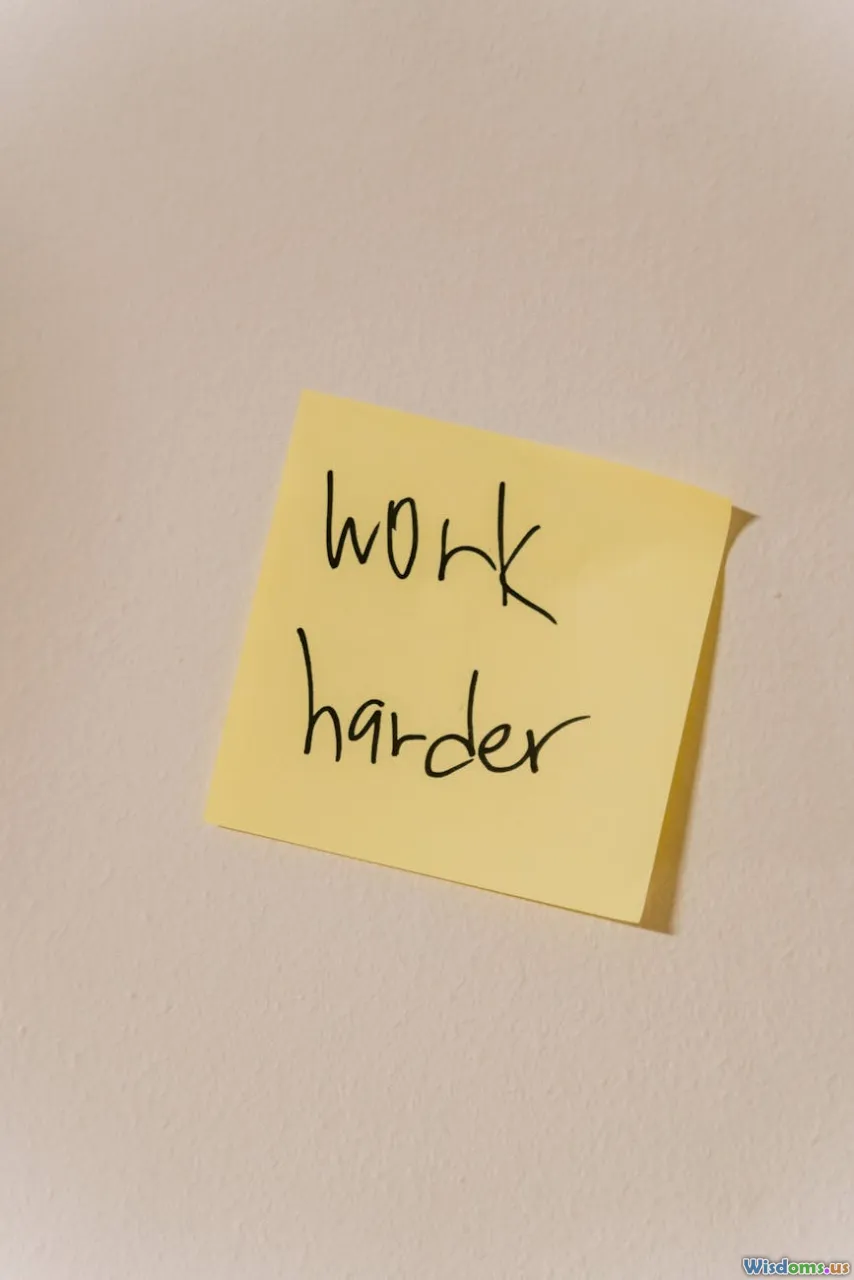
Why Does Your Career Plan Fail and How Can You Fix It
7 min read Discover why your career plan often fails and proven strategies to realign your goals and succeed. (0 Reviews)
Why Does Your Career Plan Fail and How Can You Fix It
Introduction
You spent hours crafting your career plan—a roadmap guiding you to success, fulfillment, and stability. Yet here you are, months or even years later, feeling stuck or off course. What went wrong? Why do so many career plans fail despite our best intentions and efforts? Understanding the underlying reasons can transform setbacks into opportunities for growth.
Career planning isn’t just about setting goals on paper; it’s about navigating a dynamic, often unpredictable landscape while aligning your ambitions with your evolving self and external realities. In this article, we'll dissect common causes of career plan failure and reveal practical tactics to help you reclaim control over your professional journey.
Why Career Plans Fail
1. Setting Vague or Unrealistic Goals
A career plan without clear, specific, and realistic goals is like a ship without a compass. Many people set overly broad objectives—"I want to be successful" or "I want a better job"—which lack measurable milestones.
Example:
Consider Alex, who decided to "advance in marketing" without specifying if that meant specializing, getting a managerial role, or switching industries. Without clarity, Alex lacked direction, leading to indecision and wasted effort.
Data Insight:
According to Dr. Gail Matthews, a psychology professor at Dominican University, people who write down their goals and make them specific are 42% more likely to achieve them.
2. Ignoring the Need for Adaptability
The job market and industries evolve rapidly. Technological disruptions, economic shifts, and cultural trends can render some skills or roles obsolete.
Rigid career plans often fail because they do not account for change.
Real-World Insight:
During the COVID-19 pandemic, many professionals in hospitality or traditional retail faced job losses. Those who adapted their plans to pivot into growing sectors like e-commerce or digital marketing rebounded faster.
3. Lack of Self-Awareness and Reflection
Failing to assess your strengths, weaknesses, values, and interests leads to misaligned career choices.
Example:
Jane pursued her family's vision of medicine but found herself unfulfilled due to low interest in patient care. A lack of reflection in her career plan caused dissatisfaction and eventual career shifts.
4. Insufficient Networking and Mentorship
A career plan is often inward-looking. However, external perspectives through networking and mentorship can provide crucial feedback and open doors.
Quote:
Reid Hoffman, LinkedIn co-founder, states, "Your network is the people who want to help you, and you want to help them, and that's really powerful."
Ignoring this dimension can isolate your career development.
5. Poor Time and Resource Management
Sometimes career plans fail not because of strategy but due to procrastination, distractions, or lack of prioritization.
Insight:
A survey by the Harvard Business Review found that 42% of professionals cited poor time management as a major obstacle to career progression.
How to Fix Your Career Plan
1. Define SMART Goals
Focus on Specific, Measurable, Achievable, Relevant, and Time-bound goals.
- Specific: Instead of "develop skills," aim for "complete an advanced Python programming course by December."
- Measurable: Track progress such as certifications earned or projects completed.
- Achievable: Set goals challenging yet realistic.
- Relevant: Align goals with your core values and desired industry.
- Time-bound: Assign deadlines to maintain focus.
2. Regularly Review and Adapt
Treat your career plan as a living document.
Practical Tip:
Set quarterly or biannual reviews to assess market trends, your interests, and progress. Adjust skills you’re learning, roles you're targeting, and networking priorities accordingly.
3. Engage in Self-Assessment Exercises
Use tools like StrengthsFinder, MBTI, or career coaching sessions to deepen self-awareness.
Reflect on questions such as:
- What energizes me in my work?
- Which tasks drain me?
- What environments suit my productivity?
4. Build and Leverage Your Network
Attend industry events, join professional groups, and seek mentors.
Example:
LinkedIn data indicates that 85% of jobs are filled via networking.
Mentors can provide guidance, challenge your assumptions, and celebrate milestones.
5. Prioritize Time Management and Habit Formation
Employ techniques like the Pomodoro method or time-blocking to stay committed.
Create daily or weekly action steps supporting your goals.
Conclusion
A career plan isn’t a magic bullet guaranteed to succeed. Its value lies in clarity, adaptability, and action.
Failure often stems from vague goals, inflexibility, lack of self-understanding, and missing external input.
By setting SMART goals, regularly revisiting plans, cultivating networks, practicing self-awareness, and managing time effectively, you can transform your career trajectory.
Your professional journey is unique and dynamic—embracing change and continuous growth will position you not just to reach your current goals but to thrive amid future opportunities.
Remember, the path isn’t linear; it’s your responsiveness to obstacles and your commitment to evolve that lead to lasting success.
Rate the Post
User Reviews
Popular Posts


















